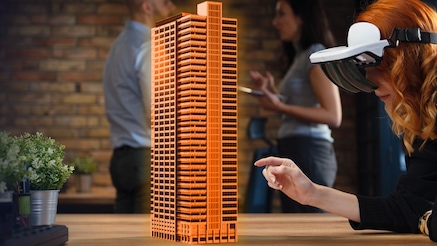2022: Metaverse goes mainstream

2022 was the year Abba made a jaw-dropping comeback; India’s digital revolution connected millions, and IoT technology souped up the strawberry. It was the year we saw military conflict in Europe, the cost of living rocketed, extreme weather pounded the planet, and the UK lost a much-loved monarch.
A maturing metaverse offered respite – moving away from living rooms, creating immersive virtual worlds we can work in, interact with and even escape to. As 2022 draws to a close, the metaverse has proved an unprecedented opportunity the communications industry dare not ignore.
January
Microsoft buys Activision Blizzard for $68.7 billion
While the world nursed a New Year hangover, Microsoft bought video game giant Activision Blizzard – creator of popular game franchises such as Call of Duty and World of Warcraft – in a $68.7 billion all-cash deal.
Microsoft’s Satya Nadella was the first CEO to acknowledge the value of the metaverse – months before Meta's Mark Zuckerberg – and cited it as a reason for the deal, helping the company compete with Meta and build technologies to create one of three metaverses.
Metaverse serves up the Australian Open
Tennis Australia came up with a novel solution to Covid-19 travel restrictions when it partnered with Decentraland to host the Australian Open (AO) – the first official tennis grand slam in the metaverse.
Key areas in Melbourne Park were recreated and featured exclusive content for virtual visitors, such as archive footage, access to the practice village and live player arrivals. Last to leave was Rafael Nadal, of course – after winning a record-breaking 21st Grand Slam.
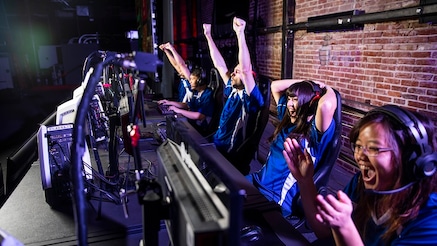

February
Brooklyn Nets become first NBA team to join the metaverse
Not to be outdone, another world-first saw NBA franchise, the Brooklyn Nets, trademark ‘Netaverse’ to deliver a unique viewing experience for basketball fans. Featuring a minute-by-minute player stat tracker, the Netaverse’s most intriguing component enabled friends to connect and share the big-game experience no matter where they were watching.
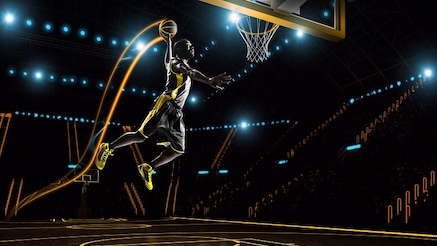
March
Libertarian city launched in the metaverse
Zaha Hadid Architects (ZHA) – one of the most prominent architecture firms – revealed a virtual city that hopes to be a libertarian utopia. Based on the so-called Free Republic of Liberland, the virtual extension is composed of futuristic buildings in the style that brought fame and recognition to the late architect's company.
In April, there was an opening party for 100 people, with avatars exploring collaborative working spaces, shops, business incubators, and a gallery for NFT art shows.
The first-ever Metaverse Fashion Week
Featuring luxury brands, household names, and digital-native designers, Metaverse Fashion Week included front-row seats at 3D catwalks, exclusive events, and immediately accessible fashion. An immersive shopping experience like no other, virtual visitors could buy digital clothing and have the physical version shipped to their doors.

April
What do you get a 103-year-old that has everything?
When Joyce Penfold from Falmouth, UK, celebrated her 103rd birthday, walking close to the Cornish coast was physically unimaginable until the University of Plymouth gave her the perfect gift – a VR headset with an omnidirectional treadmill.
After taking in the sights on her virtual walk, she ended the day with something more familiar – her secrets to a long life, chocolate and whiskey.
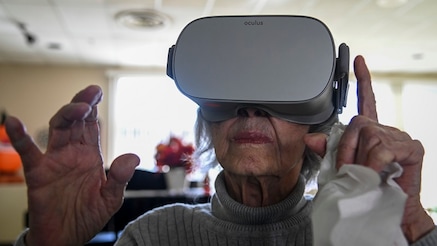
May
‘Abba-tars’ take to the stage in London
Experiencing the Swedish supergroup in their prime was a dream for most Abba fans until Industrial Light and Magic – the masters behind Star Wars – demonstrated their AI prowess and created the comeback of the century.
While the songs were familiar, de-aged human-sized digital avatars weren’t. With a live band performing the music, the event at Abba Arena, London, was a jaw-dropping hit, and it surely won’t be long before we see other artists following suit.
Spotify’s first steps into the metaverse
Spotify became the first audio-streaming brand to feature on Roblox, cementing its position in the metaverse. Music fans and gamers could visit Spotify Island to interact with their favorite artists and fellow players, win rewards and buy merchandise. Other islands, such as K-Pop-themed K-Park, quickly followed as Spotify looked to monetize the metaverse.

June
IoT serves up the perfect strawberries
Forget Novak Djokovic and Elena Rybakina; the real Wimbledon success story belonged to an All England Club staple – the strawberry. Hugh Lowe Farms – Wimbledon’s exclusive strawberry supplier – used Vodafone’s IoT technology to meet the demand for over 1.5 million strawberries.
The technology enabled the farm to make better decisions on how to apply controls to protect the strawberries, including a tracker that traced the journey of the strawberries while providing feedback on temperature, collisions, and vibrations in the packaging.

July
India's digital revolution connects millions
In 2015, only 19% of India’s 1.3 billion people had access to the internet. In July, that figure stood at nearly 60%. From isolated hamlets to mountainous terrains, mobile connectivity reached parts of India cars can’t, transforming the lives of millions through communication and transactions as Digital India looked to make India a trillion-dollar digital economy.
Drones deliver chemotherapy drugs in a world first
Drones delivered chemotherapy to cancer patients in a successful trial by Britain’s National Health Service (NHS). The drugs were carried from Portsmouth hospital to St Mary’s Hospital on the Isle of Wight. It followed a similar trial in 2020 when an NHS drone couriered Covid-19 samples, blood tests, and personal protective equipment (PPE) between hospitals in England.

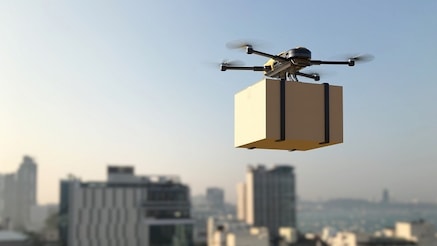
August
Africa’s first metaverse opens
Africa’s first metaverse, Africarare, opened up to the world in August, aiming to unlock Africa’s untapped talent, creativity and innovation and connect the second-largest continent to the global digital economy.
Commercialization of the 3D virtual reality experience was set in Ubuntuland – a virtual Africa where land could be bought, sold, or rented out to create art exhibitions, stores, social experiences, games and music events. Ubuntuland would host its first virtual concert at the end of November.

September
Data science saves the earth
At the end of September, Nasa successfully crashed a spacecraft into an asteroid the size of a football stadium. The mission, known as Dart (Double Asteroid Redirection Test), examined Nasa’s capacity to defend Earth from a doomsday scenario.
Using a high-resolution camera to measure the size and shape of the target, images acquired before impact were streamed back to Earth in real-time. The test showed the importance of data – and high-speed connectivity – to model scenarios that sound like a computer game but directly impact the real world.

October
Great Scott! Alef Aeronautics reveals its new flying car
Since childhood, flying cars and hoverboards have always epitomized the future. While hoverboards have yet to hold up their part of the bargain, flying cars could finally take to the air as early as 2025.
The Model A, from Alef Aeronautics, is an electric car capable of vertical take-off and – once transformed into a biplane – can fly for 110km (68 miles). For now, we’ll ignore the issues that might bring its practicality into question and embrace a future where we don’t need roads.
Welcome to the party, Bruce
John McClane, the protagonist of the Die Hard film series, was famously always in the wrong place at the wrong time. Still, even he would’ve been surprised to see an AI-generated deepfake of the actor who portrayed him, Bruce Willis, in a commercial for the Russian cell network Megafon.
Willis, who retired from acting earlier this year after being diagnosed with aphasia, quickly denied he had sold his performance rights to deepfake company Deepcake. Despite the confusion, actors that haven’t protected their digital rights could soon find themselves in roles they didn't expect due to the astonishing advances in deepfake technology.


November
AI diagnosis eases winter hospital pressures
Developed by the University of the West of Scotland, advances in AI technology could help reduce hospital pressures by cutting diagnosis times for lung diseases, such as tuberculosis and pneumonia.
The technology can diagnose patients in a matter of minutes with an accuracy of 98% by using a deep convolutional neural network – an algorithm to analyze imagery – to compare scans to a database of thousands of patient images. The University is now looking at whether the technology can help to detect cancers.

December
Connected balls take center stage at FIFA World Cup
The official match ball of the FIFA World Cup 2022 – Al Rihla by Adidas – featured the first connected ball technology, providing unprecedented levels of data to match officials, enabling them to make faster and more accurate decisions.
The ball played host to the Adidas Suspension System, stabilizing a motion sensor that provided insight into the ball's movement. Developed by FIFA and KINEXON, Al Rihla allowed video match officials to review live data when a player touched the ball, helping with offside decisions and detecting unclear touches to improve the much-maligned Video Assistant Referee (VAR). It couldn’t – however – stop the staggering amount of time added on.
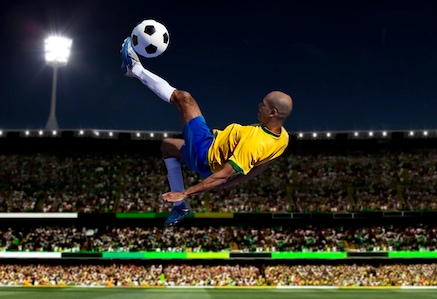
Learn more about the metaverse

Hub page
Metaverse
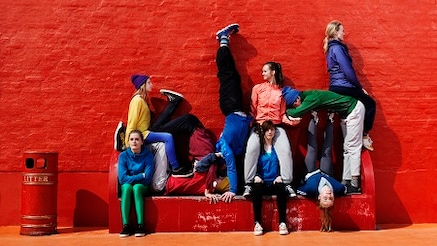
Article
